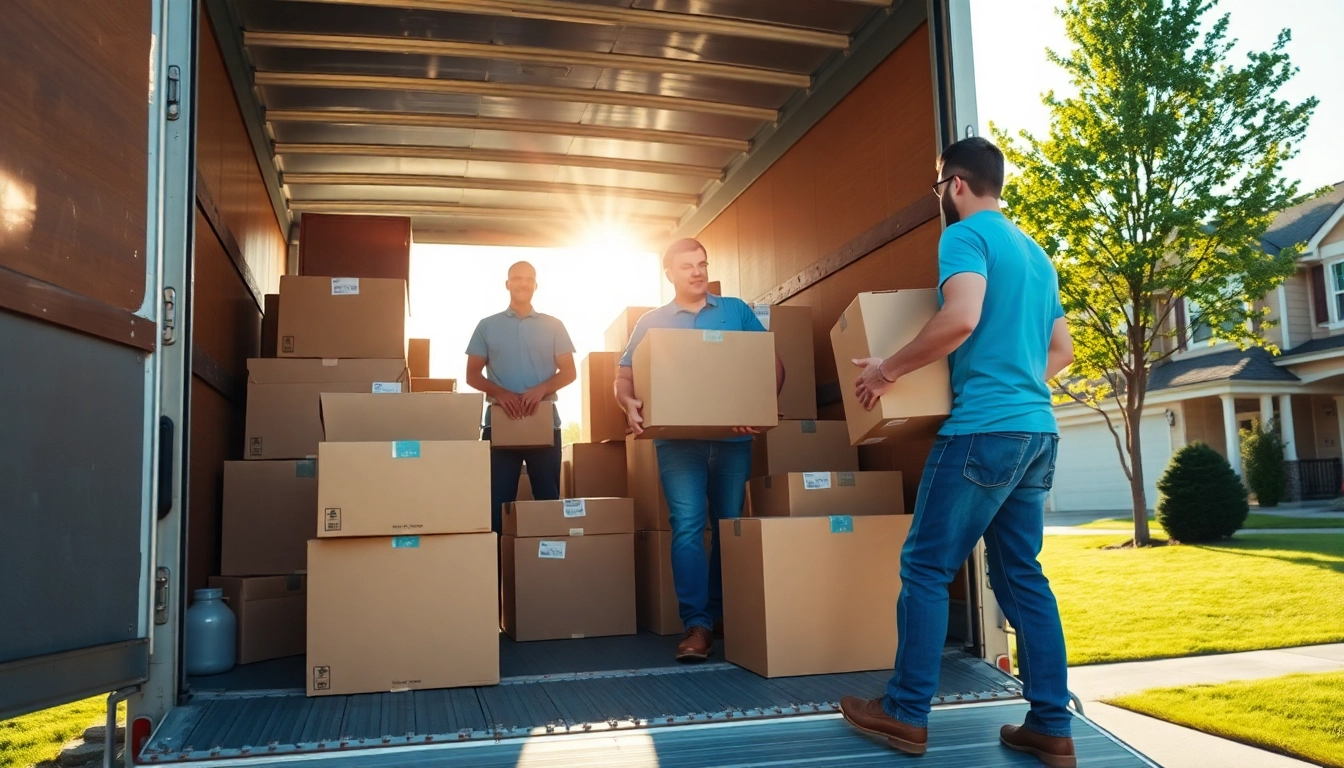Understanding House Moves: What You Need to Know
Moving houses is often cited as one of the most stressful life events people face. Whether you’re relocating across the street or to a different city, understanding the intricacies of house moves is essential to ensuring a smooth transition. Planning ahead, knowing the challenges, and selecting the right moving company can make all the difference in your experience. This comprehensive guide aims to equip you with the knowledge and resources to handle house moves efficiently.
The Importance of Planning Your House Move
Effective planning is the cornerstone of a successful house move. It helps you avoid last-minute chaos and mitigates the common pitfalls that can arise during such a transition. A well-thought-out plan includes timelines, budget considerations, and an organized approach to packing and transportation.
Key benefits of planning your move include:
- Reduced Stress: Knowing what to expect and having a clear plan alleviates anxiety, allowing you to focus on the excitement of moving.
- Cost Management: A budget helps you avoid overspending on services and supplies.
- Time Management: Organizing your tasks ensures that everything is completed in a timely manner, reducing the risk of delays.
Common Challenges Faced During House Moves
Despite careful planning, challenges can arise that may complicate your moving process. Here are some of the most common issues and how to navigate them:
- Unexpected Costs: Hidden fees from moving companies, inadequate packing materials, or last-minute purchases can inflate your moving budget. Always account for potential extras in your budget.
- Logistical Issues: Confusion during loading and unloading can arise, especially if you have multiple individuals assisting. Assign specific tasks to designated individuals to create structure.
- Emotional Turmoil: Leaving behind a home filled with memories can be emotionally taxing. Consider incorporating a farewell ritual or documenting your home before leaving.
Choosing the Right Moving Company
Choosing a moving company can be daunting given the plethora of options available. Here are key factors to consider when making your selection:
- Reputation: Research online reviews and ask for recommendations from friends or family.
- Insurance: Ensure the moving company provides insurance options to protect your valuable belongings during transit.
- Services Offered: Some moving companies offer additional services like packing and unpacking, while others may only provide transportation. Choose one that aligns with your needs.
Pre-Move Preparations: Essential Steps for Success
Creating a Comprehensive Moving Checklist
A moving checklist is your best friend when preparing for a house move. It can help keep you on track and ensure that no details are overlooked. Here are key components to include:
- 8 Weeks Before: Start sorting through belongings, create a moving budget, and research moving companies.
- 4 Weeks Before: Begin packing non-essential items, notify utility companies, and change your address.
- 1 Week Before: Confirm moving details with the moving company, finish packing, and prepare a moving day essentials box.
- Moving Day: Do a final walkthrough of your old home, supervise loading, and ensure nothing is left behind.
How to Sort and Declutter Before a Move
Decluttering is an essential step in the moving process that can save you time and money. Here’s how to effectively sort your belongings:
- Start Early: Begin decluttering several weeks before your move to avoid feeling rushed.
- Use the Four-Box Method: Label four boxes as “Keep,” “Donate,” “Sell,” and “Trash.” This simple method can help you categorize your items swiftly.
- Evaluate Each Item: Ask yourself if each item serves a purpose or brings you joy before deciding to keep it.
Packing Tips for a Smooth House Move
Efficient packing is crucial for a smooth move. Here are several tips to enhance your packing process:
- Invest in Quality Supplies: Use durable boxes, bubble wrap, and tape to protect your items during transport.
- Pack by Room: Label boxes clearly to ensure easy unpacking. This helps keep similar items together and allows for organized unloading.
- Don’t Overpack Boxes: Avoid making boxes too heavy, as this can lead to breakage and make them harder to transport.
During the Move: Best Practices to Follow
Managing Logistics on Moving Day
Logistics are paramount when it comes to the actual moving day. Smoothly orchestrating the day can save you time and reduce stress:
- Have a Clear Schedule: Determine the timeline for every aspect of the move, from packing the truck to arriving at your new home.
- Assign Roles: Designate tasks to family members or friends to ensure that everyone knows their responsibilities.
- Keep Essentials Accessible: Make sure important documents, medications, and moving day necessities are easy to reach.
Staying Organized While Loading and Unloading
Staying organized during the loading and unloading process is key to minimizing confusion:
- Load Strategically: Place heavier items in the truck first and lighter items on top to maximize space and balance.
- Unload Room by Room: Have a plan to unload items according to where they belong in your new home. This helps streamline the unpacking process.
- Keep a Moving Inventory: Maintain an inventory list of what has been loaded and unloaded to ensure nothing is misplaced.
Utilizing Technology for Efficient House Moves
In our digital age, technology can significantly enhance your moving experience. Consider the following tools:
- Moving Apps: Use moving apps to create checklists, manage budgets, and even track your belongings during the move.
- Online Platforms: Online marketplaces can simplify the process of selling or donating items you no longer need.
- Virtual Tours: For long-distance moves, consider virtual tours for prospective homes to save time and effort in finding new accommodation.
Post-Move Settling In: Making Your New House a Home
Unpacking Strategies for New Residents
Once you’ve moved into your new home, the unpacking process begins. Here are strategies to make it efficient and even enjoyable:
- Unpack Essentials First: Prioritize unpacking kitchenware, toiletries, and other essentials to make your first few days comfortable.
- Plan Your Layout: Before unpacking large items, take time to visualize or sketch the layout of your new rooms.
- Take Breaks: Don’t hesitate to take breaks during unpacking to avoid burnout. Make the process fun by playing music or inviting friends over to help.
How to Manage Change and Adjust to a New Environment
Adapting to a new environment involves more than just unpacking boxes. Here are ways to make the transition smoother:
- Explore Your Neighborhood: Take walks around your new area to familiarize yourself with local shops, parks, and community centers.
- Meet Neighbors: Introduce yourself to neighbors or join local groups to establish community connections and support.
- Establish Routine: Aim to create a routine that mirrors your previous lifestyle to help maintain a sense of normalcy.
Building Community in Your New Neighborhood
Building connections can greatly enhance your experience in a new home:
- Participate in Local Events: Attend community events, festivals, and local meetings to meet new people.
- Volunteer: Engage with local charities or organizations that align with your interests to make meaningful contributions and connections.
- Social Media Groups: Join neighborhood groups or forums online to stay updated on local happenings and to connect with fellow residents.
Measuring the Success of Your House Move
Evaluating Your Moving Experience: What Went Well?
After settling in, it’s helpful to take a step back and evaluate your moving experience. Here are some queries to consider:
- What aspects of the move exceeded your expectations?
- How effectively did you communicate with your moving company and loved ones?
- Were there any strategies you implemented that worked particularly well?
Common Metrics to Consider After a House Move
Assessing various metrics can provide insight into the success of your move:
- Time Taken: Compare your s anticipated timeline to the actual time spent on the move.
- Budget Adherence: Analyze your budget to determine whether you stayed within your financial limits.
- Emotional Reactions: Reflect on how you felt during and after the transition to gauge the emotional aspects of your moving experience.
Planning for Future Moves: Lessons Learned
Each house move brings valuable lessons that can improve future moving experiences:
- Document Your Experience: Note what worked and what didn’t so you can apply this wisdom to future relocations.
- Gather Feedback: If you used professional services, offer constructive feedback to improve future interactions.
- Stay Flexible: Understand that every move is unique, and maintain a flexible attitude to adapt to new challenges.



